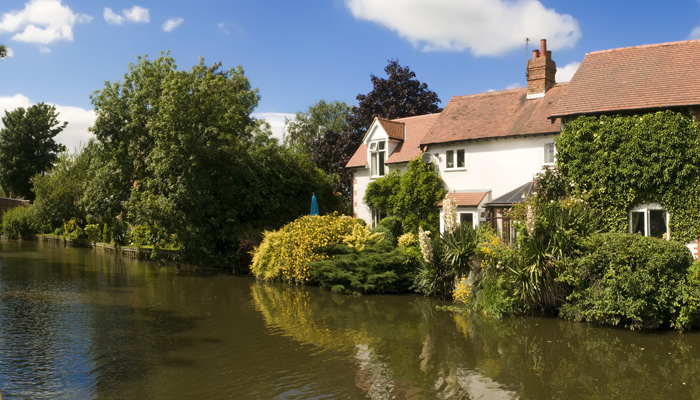Protecting Your Home From Fire and Flood Risks
Protecting your property from fire risk
Read a few quick tips to protect your home from the risk of fire and flood damage.
- Smoke detectors save lives. Fit at least two devices, one within the ground floor hall and one on the upstairs landing, preferably close to the head of the stairs. Remember to check that the batteries are still effective at least once every 3 months, and lightly vacuum clean the elements at least once a year.
- Check your electric sockets, if there are too many plugs hanging off one power point, spread them around or have more power points put in. Consider having an additional residual circuit breaker.
- If you have open fires, have the chimneys swept regularly. Use a fireguard when children are around or when drying clothes.
- Don't let children play with matches or fire.
- Don't leave hot fat or oil unattended on the cooker, if it catches fire, smother it with a fire blanket or damp cloth - not water.
- Never use a gas appliance if you think it's not working properly. Signs to look out for are soot and stains around the appliance and a pilot light that often blows out. Never cover it or block the air vents.
- Have your heating system and all gas appliances serviced regularly.
Protecting your property from flood risk
- Winter brings the threat of frozen pipes that can flood the house. Around 300 gallons of water can gush out of a burst pipe in a single hour; if you are away, or if you don't know how to turn if off, the effect can be devastating.
- Find out where your main stopcock is and check that you can turn it off and on. If you can't move it, don't be tempted to hit it with a hammer, contact a plumber instead.
- If you go away in winter, leave your heating on at the normal setting, and ask a neighbour or relative to call in from time to time to check the pipes. Make sure they know where the stopcock is. If you don't have central heating, turn off the mains stopcock and drain the water system before you leave.
- If a pipe bursts, turn off the mains stopcock, turn off the central heating system and turn on all the taps.
- If you find a frozen pipe yourself and decide to defrost it, use gentle heat such as hot water bottles or cloths soaked in hot water, and remove any items that may be damaged by a burst.
- If you live in a flood area, and you receive a flood warning, reduce the possibility of damage by acting quickly. As much as possible should be moved upstairs, especially electrical items and valuables and personal items that can't be replaced easily, like pictures and photographs. Read more in our guide to flood prevention for non-standard homes.
Flood risk insurance from Towergate
If your home has been flooded in the past some insurers won’t insure you but at Towergate we'll do our best to help you to find cover. See more on our flood risk insurance webpage.
About the author
James Cooper is a respected industry leader with around 10 years' experience in the home and property insurance sector. He works across a broad range of insurance product and policy development and delivery, including product development; customer sales and marketing; and P&L accountability.
Home insurance from Towergate
We offer specialist home insurance policies tailored to your needs. Contact our home insurance team today for a quote on 03447 368 249 or see our home insurance page.
Date: July 31, 2024
Category: Home and Property










